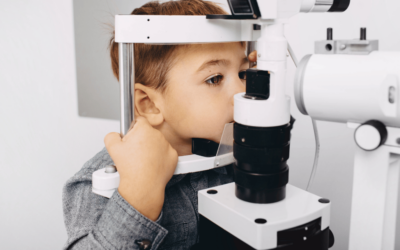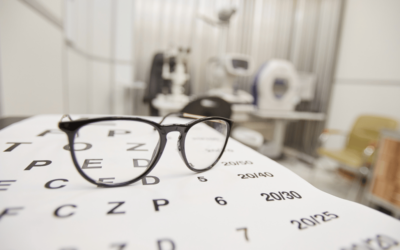Early eye exams are crucial for detecting and addressing potential vision issues before they impact your child’s development and learning. By scheduling regular eye exams, you can help your child see clearly, succeed in school, and enjoy life to the fullest. In this blog, we will discuss the importance of early eye exams, the recommended timeline for these visits, and what to expect during them.
Why are early eye exams important?
Early eye exams are essential for several reasons:
- Detecting vision problems early: We can correct many vision problems more easily if we detect them early. Conditions like amblyopia (lazy eye), strabismus (crossed eyes), and significant refractive errors (nearsightedness, farsightedness, astigmatism) respond better to treatment when caught early.
- Supporting learning and development: Good vision is critical for your child’s learning and development. Eighty percent of learning is visual, and untreated vision problems can affect their ability to read, write, and participate in classroom activities.
- Preventing long-term issues: Early detection and treatment of vision problems can prevent more serious issues down the road. Some conditions, if left untreated, can lead to permanent vision loss.
When should your child have their first eye exam?
The American Optometric Association (AOA) recommends the following schedule for children’s eye exams:
First eye exam at 6 months
Your baby should have their first comprehensive eye exam at 6 months old. At this age, we can check for any early signs of eye health issues and ensure their vision is developing correctly. During this exam, we’ll look for signs of conditions like congenital cataracts or strabismus. Early detection and intervention are crucial, as some eye conditions can affect visual development.
Second eye exam at 3 years
At around age 3, you should schedule another eye exam for your child. At this stage, we can assess visual acuity (how well they see at a distance), eye alignment, and overall eye health more thoroughly. We’ll test their ability to see clearly and check for any issues with depth perception or eye coordination. This exam also helps us identify conditions like amblyopia (lazy eye) or significant refractive errors, which are crucial to address early to prevent long-term vision problems.
Before starting school: 5-6 years
Before your child starts kindergarten, it’s important to schedule another eye exam. This exam ensures that your child has the visual skills necessary for school, such as the ability to see the board clearly, focus on reading materials, and use both eyes together effectively. We’ll also check for signs of vision problems that could impact learning, such as difficulty with reading or writing, and assess their eye health and visual development comprehensively.
By following this schedule, you help ensure that we detect and treat any vision issues early, setting your child up for a lifetime of healthy vision. Regular eye exams are crucial because they not only check for vision problems but also screen for other health issues that might affect your child’s development.
At Walter Eye Clinic, we offer pediatric eye exams in Tinley Park, Illinois, for babies, children, and teenagers to assess your child’s vision, diagnose eye conditions, and develop a customized treatment plan to ensure they maintain optimal vision and eye health. If it’s time for your child’s first eye exam, or if you have any concerns about their vision, schedule an appointment with us today.



